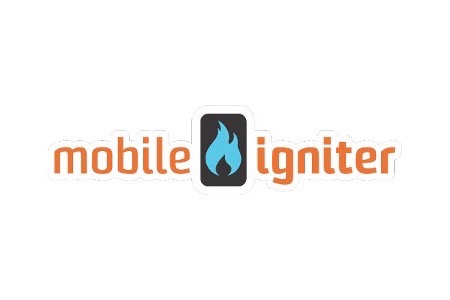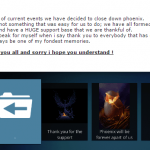MobileIgniter to Shut Down After Five Years and Multiple Pivots

According to U.S. Census data, less than half of businesses started between 1977 and 2000 lived to celebrate their fifth birthday.
Indeed, today’s entrepreneurs understand there’s no guarantee they’ll succeed. There’s even a celebratory culture around failure in some circles. But if a startup does fail, the question is what lessons can be applied to the next one.
Case in point: MobileIgniter, a Madison, WI-based startup launched in 2011 that focuses on the Internet of Things—where device makers update offline machines with Internet capabilities—will be shutting down in August, says co-founder Tim Nott.
“It’s really, really hard to close a company—it’s extremely painful,” Nott says. “I don’t have any regrets, and I’ve learned a ton. But there are so many people that helped us out, invested in us, and cheered us on. I wish I could’ve been able to repay that in the way that everyone likes to see that happen—with the big success. That part is definitely a thorn in my side.”
Mention the Internet of Things to many non-techies and they’ll think of gadgets such as connected thermostats, lights, and doorbells. Nott says that while consumer-facing devices are the headline-grabbing, “sexy part” of the IoT, they’re just the tip of the iceberg.
MobileIgniter chose to focus on the business market for IoT. “Long term, there’s going to be many more sensors and devices on the agricultural, industrial, and manufacturing side than on the consumer side,” adds Dominic DiMarco, the startup’s other co-founder. “Most people don’t need their refrigerator connected to the Internet. But the people who manufacture that refrigerator are putting sensors and intelligence all along through their assembly and distribution channels that are making that refrigerator cheaper and more reliable.”
A report by McKinsey & Company estimates that business-to-business applications will account for nearly 70 percent of the IoT market in 2025. By that time, connected devices could have an economic impact of up to $ 3.7 trillion in factories, ahead of other settings like cities and vehicles, according to the report.
Another reason MobileIgniter chose to focus on IoT applications in agriculture and manufacturing had to do with what was happening around the company in Wisconsin and the upper Midwest.
Nott says that after completing a few projects, some of them for Fortune 1000 companies, he and his team struggled to sign up new clients. One major challenge was that MobileIgniter is small and lean, he says, while the groups it targeted were generally large and established.
“What we found was that the sales cycle for the market we specifically wanted to go after is just way too long for a small company to absorb,” Nott says. “Originally, we estimated that the sales cycle would be somewhere between three and six months. We then adjusted that to say it’s nine to 12 months.”
MobileIgniter kicked off a marketing campaign around April 2015, Nott says. After a year had passed without closing a deal, the startup decided to call it quits, he says.
Still, Nott says he believes that there’s ample demand from the groups to whom MobileIgniter marketed its services. “We hope to see IoT embraced by manufacturing and ag in the state and in the region,” he says. “But it’s not going to be because of us.”
Indeed, the Internet of Things is poised for explosive growth, analysts say. According to research from Cisco Systems, by 2020 IoT will be a $ 14 trillion industry, comprising some 50 billion connected devices.
Nott says that he’s already taken a job as a product manager, which he starts next month. He declined to name the organization he’ll be working for, saying only that it’s “established” and “not large.” He will continue to be based in Madison.
DiMarco, meanwhile, is still weighing his options.
“It’s been such an intense five years [that] I don’t even know where I want to go next and what I want to do,” he says. “For all I know, you might find me waiting tables in Bali or selling t-shirts on the street in India. I could literally be doing anything.”
MobileIgniter had four employees, including Nott and DiMarco. Nott says that both of the others accepted severance packages.
DiMarco said it’s possible he’ll work with Nott again in the future. The two met in 1994 when they were students at the University of Wisconsin-Madison, and kept in touch over the years before creating MobileIgniter. “We still have a really solid personal and business relationship,” DiMarco says.
Their startup came a long way from its beginnings. It was originally conceived as a platform for developing iOS and Android apps using a Web browser. That concept got MobileIgniter accepted into the first class of Gener8tor, an accelerator for early-stage companies that runs programs in Wisconsin and Minnesota, in 2012.
DiMarco says that soon thereafter, a bevy of entrepreneurs and startups flooded the market, “and it became a race to the bottom on price.”
So MobileIgniter pivoted, and would later pivot again.
First it developed Lyft.io, a product that focused on equipping drones with software to assist with building inspections and other tasks. DiMarco sounds wistful as he describes what he feels was poor timing. “We were so far ahead of it,” he says. “The FAA just made some [recent] changes that actually could’ve made some of the stuff we were doing back then legal.”
MobileIgniter then shifted its focus to IoT. The ultimate goal was to create and commercialize a novel device. Since that would require a significant amount of capital, the team decided to do IoT-related consulting work to keep revenues flowing.
“We played with several product ideas, but none of them passed the customer validation steps,” DiMarco says.
MobileIgniter is the fourth of Gener8tor’s 42 graduates to go out of business, says Troy Vosseller, who co-founded the accelerator. The other three are DineInTime, SpanDeX, and Zero Locus, he says.
(While Gener8tor considers Zero Locus a failed company, Vosseller notes that it has been reincarnated as Functor Reality. Art Mellor, who co-founded Zero Locus and served as its CEO for three years, left the company last year, according to his LinkedIn profile.)
Meanwhile, four startups in Gener8tor’s portfolio have been acquired: Driblet Labs, Docalytics, Optyn, and Modern Movement (which Nautilus acquired in September, Vosseller says).
Gener8tor was one of several investors in MobileIgniter, along with American Family Insurance, according to the website CrunchBase. MobileIgniter raised a total of $311,000, according to the site, and Nott says that figure is roughly accurate.
One of the steps involved in winding down the business is filing dissolution papers with the State of Wisconsin, DiMarco says.
“It’s actually remarkably simple,” he says. “You have to pay off all of your bills, but it’s not as if we have creditors. There is no bankruptcy going on.”
Nott says one thing he learned from MobileIgniter that he’ll carry with him into the future is the importance of keeping your ears open, and acknowledging that your grasp of the market is never perfect.
“Spend time understanding your customer,” he says. “It costs very little to just call people, have conversations, and try to find pain points.”
(36)













